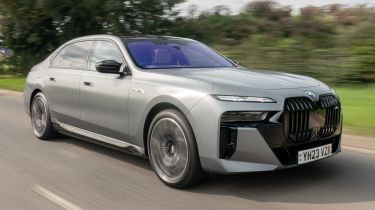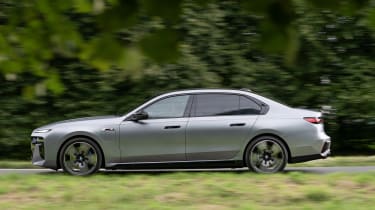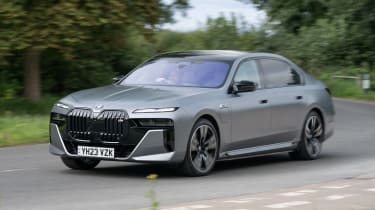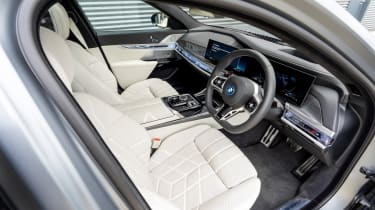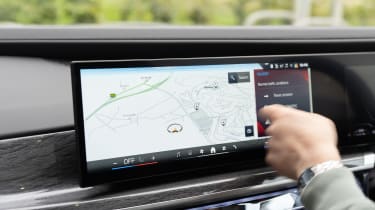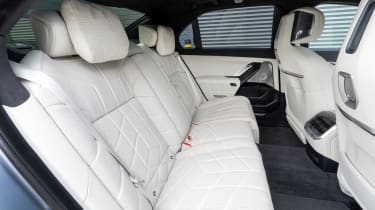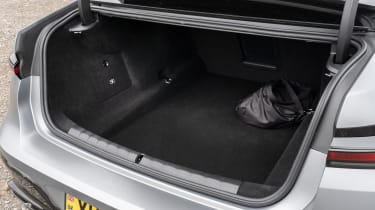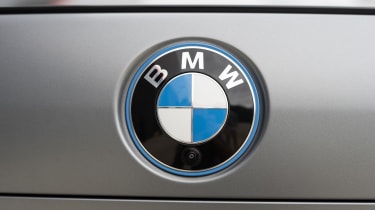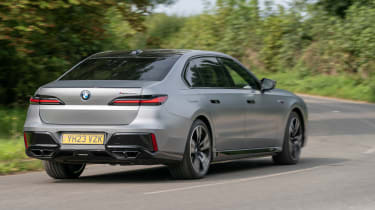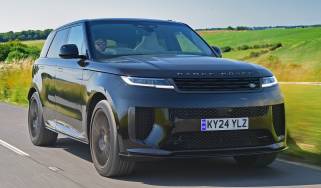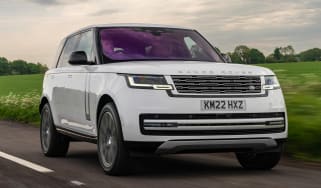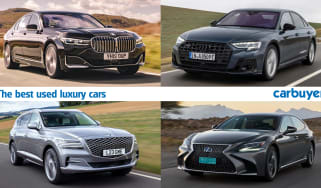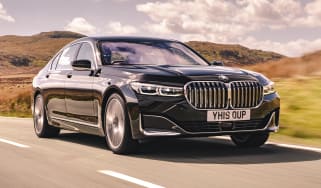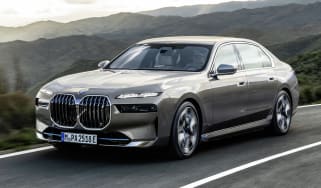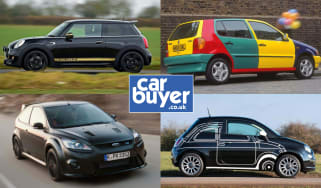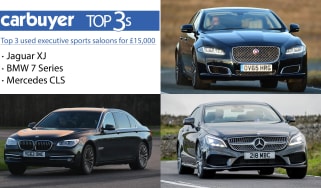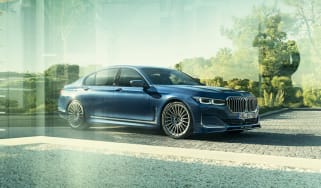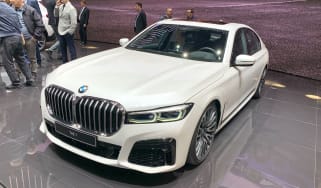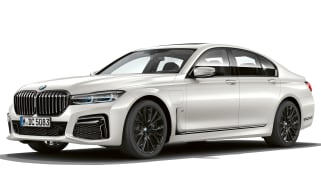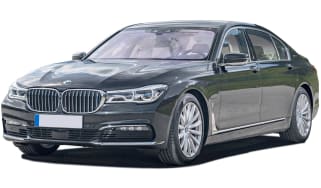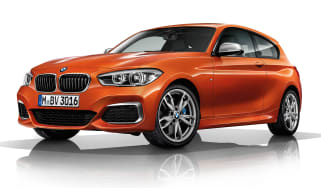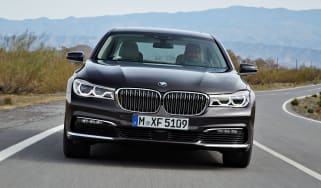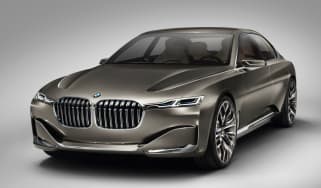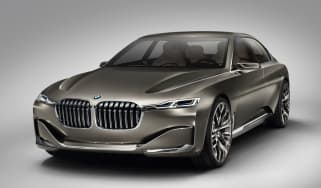BMW 7 Series review – tech-laden, comfortable and good to drive
“The BMW 7 Series looks and feels special, taking a hi-tech approach to luxury”
Pros
- Comfortable ride
- Composed handling
- Great build quality
Cons
- Polarising styling
- Expensive
- High running costs
Verdict – is the BMW 7 Series a good car?
The BMW 7 Series manages to be one of the most comfortable cars to ride in and yet it still boasts impressive handling, which is no easy feat. It takes a more modern, forward-looking approach with loads of fancy tech that will impress its occupants and leaves behind some of the classic notions of luxury. It’s expensive, though, and options will quickly send the price skyrocketing further.
BMW 7 Series models, specs and alternatives
The BMW 7 series has long been the German brand’s largest and most luxurious saloon car, taking on other flagship models like the Mercedes S-Class and Audi A8. It’s now in its seventh generation, and exists in a time where luxury means something different – rather than wood trim and leather, it’s now all about hi-tech infotainment and novel features.
The latest 7 Series exudes plenty of road presence – more so than the model that came before it. As usual, the brand’s styling divides opinion, and the 7 Series’ large grille and boxier silhouette might not be for everyone. At the front it gets split headlights, with the running lights consisting of two thin strips either side of the grille and the main lights sitting just below them. The tail-lights are similarly thin and the rear end of the 7 Series is decidedly more discreet.
| Trim levels | Power options |
|
|
MPG, running costs & CO2 emissions
The BMW 7 Series is an expensive car from the outset, costing over £100,000, so it’s unlikely the buyer will be too concerned about running costs. That said, all versions of the 7 Series are now electrified in some way – both the base powertrain and the performance M division car are plug-in hybrids, while there’s also the fully-electric i7 to cater to those after zero tailpipe emissions motoring.
More reviews
Those choices of powertrain mean that all versions of the 7 Series boast good on-paper fuel efficiency figures and low CO2 emissions, so they’re all good as company-car options given they sit in low BiK (Benefit-in-Kind) tax brackets – in fact, both the plug-in hybrids incur just 8% BiK tax.
| Model | Fuel economy | CO2 emissions |
| BMW 750e xDrive | 283mpg | 23g/km |
| BMW M760e | 257mpg | 25gkm |
How efficient is the BMW 7 Series in the real world?
It’s worth noting that plug-in hybrids will only really achieve their lofty fuel-efficiency figures if you keep them regularly charged up. During our time with the M760e, once the battery had run out, we only managed 34.1mpg.
How much will the BMW 7 Series cost in tax?
The BMW 7 Series is eligible for a £10 annual VED (road tax) discount as a plug-in hybrid, while road tax is free for the all-electric i7 until April 2025. Because the 7 Series and i7 both cost well over £40,000 they will incur the luxury car surcharge from years two to six of the car’s life, however, making them expensive to tax.
What will the BMW 7 Series cost to insure?
All versions of the 7 Series sit in the highest insurance group 50 out of 50, including the all-electric i7. That contrasts with the Audi A8 which, while higher-spec models also sit in the highest group, has some versions which sit in group 29. All versions of the Mercedes S-Class sit in the highest group 50, as does the electric EQS.
Engines, drive & performance
As a super-upmarket saloon car, the BMW 7 Series should offer a cosseting and relaxing ride first and foremost, given it’s likely to be used to transport very important passengers. On that front, the latest version does a great job, and the ride quality is top-notch – the suspension soaks up the road’s imperfections brilliantly, and any major jolts are insulated from the cabin.
Despite its size and heft, the BMW 7 Series feels a lot smaller than it is from behind the wheel – it manages to feel much nimbler than you might expect.
Is it good to drive in town?
The 7 Series is incredibly refined and quiet thanks to the plug-in hybrid drivetrain. This is especially apparent in around-town driving, where it can run on electric power almost silently for extended periods of time. The steering is light and accurate, which helps the 7 Series feel nimbler – specify the four-wheel steering and the turning circle is smaller than you’d expect, making tight manoeuvres easier.
Is it good to drive on long journeys?
At faster cruising speeds, the BMW 7 Series’ adaptive air suspension does a great job of helping it feel planted. A sophisticated system drops the ride height by 10mm to improve aerodynamics on the motorway, too. It’s incredibly refined, so occupants will feel relaxed and comfortable while cruising along.
Is it good to drive on B-roads?
You wouldn’t expect a car of its type to perform particularly well on a B-road, but the 7 Series is surprisingly competent in the twisties. Its weight and size ultimately means it’s not exactly sporty to drive, but it handles things well, with lots of body control and plenty of grip. Put it into Sport and the ride is firmed up for even more cornering control – perfect if you need to make a quick getaway from the paparazzi.
Plug-in hybrid models
There are just two versions of the 7 Series available, both of which use plug-in hybrid powertrains. The entry-level model is the 750e, which boasts a very healthy power figure and will satisfy most tastes. If you’re after even more performance, BMW offers a potent M760e version with input from its M division.
| Model | Power | 0-62mph | Top speed |
| BMW 750e | 483bhp | 4.8 seconds | 155mph |
| BMW M760e | 562bhp | 4.3 seconds | 155mph |
Electric models
If you want a fully-electric version of the 7 Series you’re in luck, because that role is filled by the BMW i7. It comes in three power options, starting with the single-motor i7 eDrive50, moving up through the four-wheel drive i7 xDrive60 and the performance-focused i7 M70.
| Model | Power | 0-62mph | Top speed |
| BMW i7 eDrive50 | 449bhp | 5.5 seconds | 127mph |
| BMW i7 xDrive60 | 536bhp | 4.7seconds | 149mph |
| BMW i7 M70 xDrive | 650bhp | 3.7 seconds | 155mph |
Interior & comfort
For a car like the BMW 7 Series, the interior quality needs to be a focal point if it’s to be a success. Take a seat inside and it doesn’t take long to realise you’re in a special place. The built quality is excellent, and there’s loads of tech adorning the cabin, so it feels rather futuristic.
On the dash and following onto the door panels you get BMW’s ‘Interaction Bar’, which lights up with different colours depending on the theme or drive mode you put the 7 Series into. It also displays safety warnings to grab your attention if needed. Some controls, like the demister controls and hazard button are found on this bar, but we found the latter rather hard to press, and doing so forced out a loud creak from the bar, showing up the otherwise top-notch build quality.
On the back doors there are two small touch pads for rear passengers to use to control the climate control or seating position – these are intuitive to use, but can be sluggish to respond.
Is the BMW 7 Series’ infotainment and sat-nav system easy to use?
One stand-out feature of the 7 Series is its impressive optional theatre screen with folds out from the roof – it’s a massive 31.3-inch touchscreen with 8k resolution that passengers can use to watch streaming services and the like.
The infotainment system is crisp and easy to use, and we think BMW’s iDrive is one of the best in the business.
There are two versions of the Bowers & Wilkins sound system to go for. One comes with 18 speakers and a 655-Watt output, while the Diamond Surround sound system can be added as part of the Technology Pack Plus or Ultimate Pack, boosting power to 1,965 Watts. It’s likely to be overkill for most buyers, but worth it if you’re a real audiophile.
Key features | |
|
Excellence
|
M Sport (Excellence plus…)
|
|
M760e
| |
Boot space, practicality & dimensions
The BMW 7 Series is a large, commanding car with presence, and that has translated to a spacious interior for occupants. Unfortunately, visibility isn’t the best – the dashboard sits quite high, so you have to raise your seats higher than you might expect, and the rear pillars are rather thick. Luckily the myriad driver assistance features help to make things much easier.
There’s lots of legroom and headroom in the back, which should satisfy the important people that might be ferried around. Unfortunately there is a wide transmission tunnel that goes through the middle of the car which can rob some foot space, especially for any potential centre-seat passenger.
| Size comparison | |||
| Model | Length | Width | Height |
| BMW 7 Series | 5,391mm | 1,950mm | 1,544mm |
| Mercedes S-Class | 5,179-5,320mm | 1,954mm | 1,503mm |
| Audi A8 | 5,172-5,320mm | 1,945mm | 1,473mm |
| Lexus LS | 5,235mm | 1,900mm | 1,450mm |
Does the BMW 7 Series have a big boot?
The BMW 7 Series offers a large 525-litre boot, but the Mercedes S-Class’ luggage capacities are more impressive. The 7 Series’ boot shape is a little awkward, too, with a narrow opening and steps on either side that could make it difficult to load in larger items.
| Boot space comparison | |
| Model | Boot space |
| BMW 7 Series | 525 litres |
| Mercedes S-Class | 550 litres |
| Audi A8 | 505 litres |
| Lexus LS | 430 litres |
Reliability & safety
Of the premium German car brands, BMW ranks the highest in our Driver Power customer satisfaction surveys. In 2024 it came in 14th place out of 32 manufacturers overall. In comparison, Audi came in a disappointing 27th place, while Mercedes came in 25th place. Buyers liked their BMWs’ engines for their swift power delivery, and the brand’s infotainment was ranked highly. Servicing is a low point, as it’s rather costly, and BMW came in 27th in this category. Lexus fared better in the survey, coming in 12th place.
Reliability seems to be slightly better than average for the brand, with 21.4% of BMW owners reporting an issue with their car in the first year – that was just about on par with Audi owners, although Mercedes owners reported more faults at 26.3%. Lexus is the reliability king when it comes to premium marques though – just 17.9% of owners reported an issue in the first year.
How safe is the BMW 7 Series?
Euro NCAP hasn’t crash-tested the 7 Series because it’s not a mainstream model that will sell in high numbers. That said, we’d trust it to be pretty safe, and it gets a high level of safety assistance tech that includes lane keep assist, autonomous emergency braking, blind spot monitoring and more.
Should you buy a BMW 7 Series?
The BMW 7 Series is a thoroughly impressive high-end car that feels special and is thoroughly tech-laden. It’s incredibly comfortable and refined to travel along in, which is one of the main reasons you’d buy one, but even if you’re the driver, the 7 Series feels very capable and nimbler than you might expect.
It’s not perfect of course; for starters it’s very expensive, and not everyone will be a fan of its divisive styling – the S-Class takes a more classic approach while the 7 Series gets a bolder, more outlandish design.
BMW 7 Series alternatives
The BMW 7 Series has some long-standing German rivals to contend with, but there are also other cars you should consider. While it’s long stood as the underdog, the Lexus LS is a smart, reliable choice, and avid drivers might prefer to put the same money into a Porsche.
Which Is Best?
Cheapest
- Name750e xDrive Excellence 4dr Auto
- Gearbox typeSemi-auto
- RRP£106,190
Most Economical
- Name750e xDrive M Sport 4dr Auto
- Gearbox typeSemi-auto
- RRP£110,690
Fastest
- NameM760e xDrive 4dr Auto
- Gearbox typeSemi-auto
- RRP£121,765

